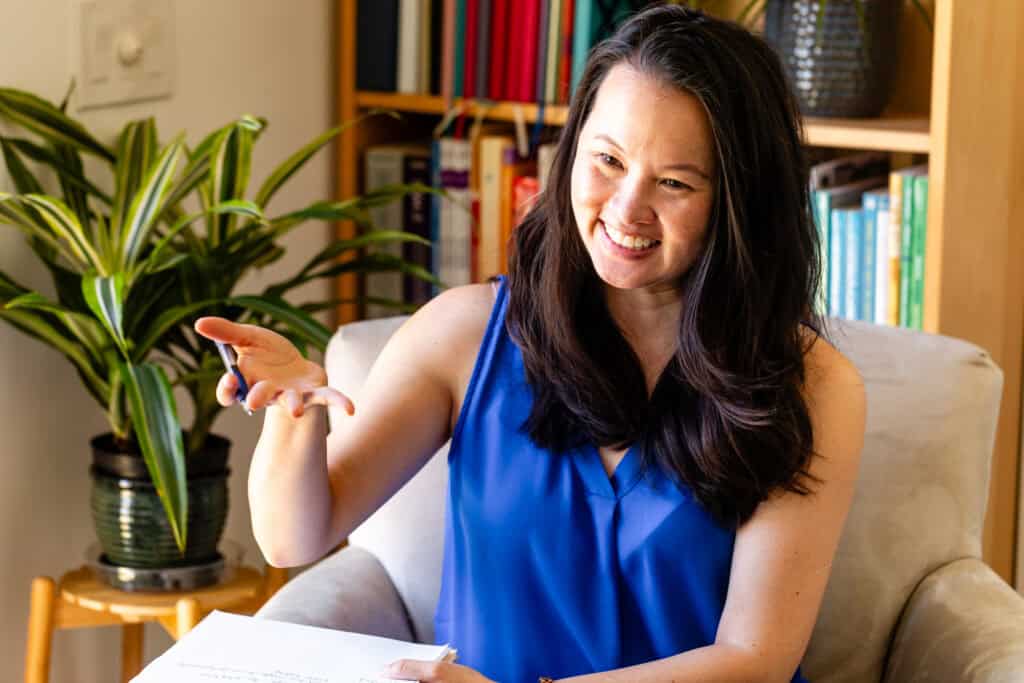Support for Educators
Professional Development to Reach Diverse Math Learners
Workshops and consultation that build teachers’ knowledge, skills, and confidence to support struggling math students.
Support for Educators
Professional Development to Reach Diverse Math Learners
Workshops and consultation that build teachers’ knowledge, skills, and confidence to support struggling math students.

Strengthening Teaching With Insight, Strategies, and Support
- All students deserve equitable, accessible instruction
Students thrive when instruction fits how they learn.
- Teaching diverse learners is complex
With limited training and resources, needs go unmet.
- Teachers have the power to make a difference
Instructional choices shape access and outcomes.
- Professional development turns teacher power into practice
Teachers gain clarity and confidence to reach every learner.

“Teaching mathematics to students with disabilities is a complex undertaking and should involve the shared knowledge and expertise of professionals working together as a cohesive team.”
Math + Psychology, In Practice
Hi, I'm Adena
I am a school psychologist and math educator who connects the why of learning disabilities to the how of teaching math.
For the past 11 years, I’ve worked closely with students with math learning disabilities and challenges, translating what I’ve learned into practical strategies teachers can use to reach diverse math learners.

My Approach
- Needs-based
We’ll address your problems — by clarifying your challenges, needs, and goals, we can individualize solutions to fit your specific situation.
- Collaborative
We will co-create solutions — teachers’ classroom insights are essential for developing plans that work.
- Teacher-centered
You will learn a lot — my goal is to equip teachers with knowledge, skills, and agency to make confident, effective teaching decisions.

“Effective professional development is…”
- Content-focused
- Incorporates active learning
- Supports collaboration
- Uses models of effective practice
- Provides coaching and expert support
- Offers feedback and reflection
- Sustained over time
Ways We Can Work Together
Workshops
In these trainings, teachers will gain insights and practical strategies to support diverse math learners.
- Learn relevant theory, research, and professional approaches
- Explore practical examples and classroom applications
- Apply and integrate concepts into to your own teaching practices
Audience: Grades 6–12 • Teachers & supporting educators
- Root causes of math difficulties
- Classroom-based strategies
- Effective accommodations
- Assessment & diagnosis of math learning disabilities
Coaching
Follow-up coaching sessions help teachers to apply and refine workshop strategies and principles
- Get help integrating workshop lessons into practice
- Clarify, brainstorm, collaborate, reflect, and receive feedback
- Receive accountability, motivation, and community to integrate practices
Details: Ongoing • Virtual or on-site
Audience: Teachers participating in a workshop
Consultation for Teachers
Consultation offers collaborative support for teachers who want to better undersand and meet their students’ needs.
- Identify your teaching goals & challenges
- Clarify your students' learning needs
- Develop personalized, actionable teaching plans
Details: Ongoing • Virtual or on-site
Audience: Grade 6-12 math & SPED teachers
- Case consultation
- Differentiation
- Curriculum & lesson planning
- Classroom routines
Consultation for School Leaders
Consultation helps school leaders understand and support the math learning needs of all their students.
- Identify your school's & students' needs
- Evaluate your current systems and programs
- Create effective solutions to support student success
Details: Tailored to your needs • Virtual or on-site
Audience: Administrators, program coordinators, & coaches
- Universal screening & early identification
- Strategies for Tier 1, 2, & 3 math interventions
- Developing invervention programs
Not sure which option fits your needs? Let’s talk! →
Learn more about my Online Course for Math Teachers.
Teacher Stories
“[Adena] has given me the confidence and strategies to figure out what each student needs.”
8th Grade Math Teacher
(Former Teacher Client)
“I have learned how to break things down better and how to really get into a student’s shoes when something’s not working.”
6th Grade Math Teacher
(Former Teacher Client)
“Adena helped me understand the emotional experiences of students with math difficulties — and what we can do instructionally to support them.”
5th Grade Math Teacher
(Former Teacher Client)
References & Resources For Educators
Best Practices for Math Teachers
National Council of Teachers of Mathematics. (2025). Changing the professional culture of teaching mathematics. https://www.nctm.org/Standards-and-Positions/Position-Statements/Changing-the-Professional-Culture-of-Teaching-Mathematics
National Council of Teachers of Mathematics. (2000). Principles and standards for school mathematics. Author.
National Council of Teachers of Mathematics. (2014). Principles to actions: Ensuring mathematics success for all. Author.
Best Practices for Teacher Professional Development
Darling-Hammond, L., Hyler, M. E., Gardner, M. (2017). Effective teacher professional development. https://doi.org/10.54300/122.311
Loucks-Horsley, S., Stiles, K. E., Mundry, S., Love, N., & Hewson, P.W. (2010). Designing professional development for teachers of science and mathematics (3rd ed.). Corwin. https://doi.org/10.4135/9781452219103
The Importance of Teachers' Pedagogical Content Knowledge
Ball, D. L., Thames, M. H., & Phelps, G. (2008). Content knowledge for teaching: What makes it special. Journal of Teacher Education, 59(5), 389-407. https://doi.org/10.1177/0022487108324554
Hill, H. C., Ball, D. L, & Schilling, S. G. (2008). Unpacking pedagogical content knowledge: Conceptualizing and measuring teachers’ topic-specific knowledge of students. Journal for Research in Mathematics Education, 39(4), 372-400. https://www.ugr.es/~pflores/2008_9/Master_Conocim/textos%20JP/%5B1%5D_Hill-Ball-Schilling-JRME2008-07.pdf
Shulman, L. S. (1986). Those who understand: Knowledge growth in teaching. Educational Researcher, 15(2), 4-14. https://www.jstor.org/stable/1175860
Recommendations for Teaching Students with Disabilities
American Institutes for Research. (2002). Specific learning disabilities: Finding common ground. A report developed by the ten organizations participating in the learning disabilities roundtable. https://eric.ed.gov/?id=ED469464
National Association of School Psychologists. (2022). Identification of students with specific learning disabilities. https://www.nasponline.org/x59975.xml
National Council of Teachers of Mathematics & Council for Exceptional Children. (2024). NCTM and CEC position statement on teaching mathematics to students with disabilities. https://www.nctm.org/Standards-and-Positions/Position-Statements/Teaching-Mathematics-to-Students-with-Disabilities/
Let's Plan PD That Meets Your Goals
Get in touch to explore workshops, coaching, or consultation that work for your team.